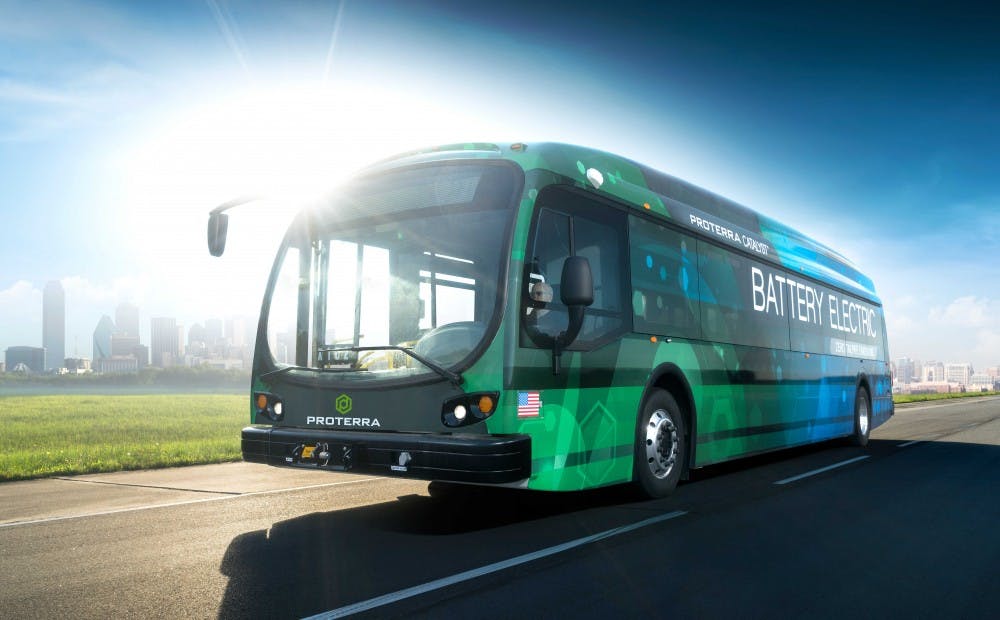Low-emission electric buses could be coming to North Carolina.
GoTriangle is applying for a regional grant that would allow for the company and its partners to receive funding for electric buses.
Chapel Hill Transit, GoTriangle, GoCary and GoRaleigh would receive funding for low-emission buses under the grant. The grant would not cover all the costs of the electric buses but would aid the funds the company already plans on using.
While the buses would cost double the amount of a standard bus upfront, they would save $200,000 to $400,000 per vehicle over the vehicle's lifespan, which is around 12 years.
Jeff Mann, general manager for GoTriangle, said the buses would be quieter and would produce fewer emissions than the buses currently in use.
“We would very much like to get started with electric vehicles as a region and more than just GoTriangle,” said Mann.
The $980,000 buses include maintenance supplies such as charging stations. The seven buses that would be purchased would come from Proterra, a manufacturing company that produces low-emission vehicles.
If GoTriangle is awarded the grant, Proterra is offering to contribute $175,000 to the costs of the buses as well.
GoTriangle's decision to apply for the low-emission buses comes from the increased range the Proterra buses provide, which had been a concern with electric buses in the past.



